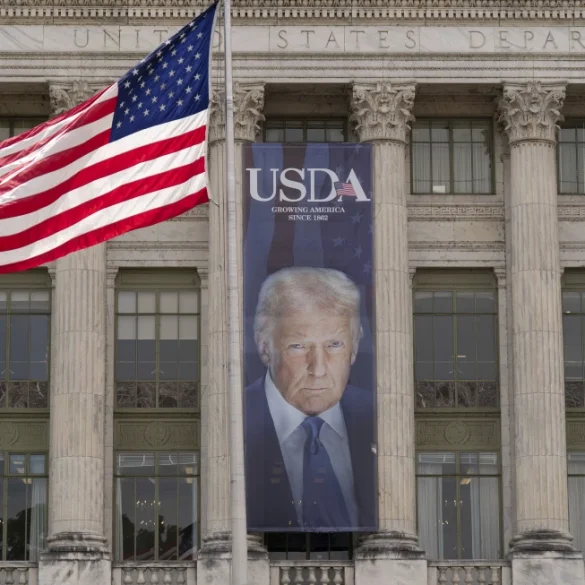Privacy and hunger relief groups, along with a few people who get food aid, are suing the federal government over the Trump administration’s push to collect personal details of millions of people who use the Supplemental Nutrition Assistance Program.
The lawsuit, filed Thursday in Washington, D.C., claims that the U.S. Department of Agriculture broke federal privacy rules when it told states and vendors to hand over five years’ worth of data on food assistance applicants and recipients. This includes names, birth dates, home addresses, and social security numbers.
The lawsuit “seeks to ensure that the government is not exploiting our most vulnerable citizens by disregarding longstanding privacy protections,” attorney Daniel Zibel of the National Student Legal Defense Network said in the complaint. The Electronic Privacy Information Center and Mazon Inc.: A Jewish Response to Hunger joined four SNAP recipients in filing the case.
The White House did not reply right away to a request for comment.

The Supplemental Nutrition Assistance Program, or SNAP, helps more than 42 million people across the country. The federal government pays for all the food benefits, while states help pay for program management. States also decide who qualifies for help and are in charge of giving out the benefits.
Because of this, states hold detailed personal records about SNAP applicants and their families, including financial, health, housing, tax, and other sensitive information, the lawsuit says.
On March 20, President Donald Trump signed an executive order telling federal agencies to make sure they have “unfettered access to comprehensive data from all state programs.” The goal was to cut “waste, fraud and abuse by eliminating information silos.”
Following that order, Elon Musk’s Department of Government Efficiency and the USDA asked states and vendors of electronic benefit systems to share the data earlier this month. In a letter, the USDA warned that not providing the data could “trigger noncompliance procedures.”
Some states have already sent the data. Alaska, for example, gave up personal information on more than 70,000 people, according to the lawsuit. Others, like Iowa, are planning to share the information, the plaintiffs said.
The lawsuit asks a judge to rule the data collection illegal, order the USDA to destroy any data it already has, and stop the agency from taking action against states that don’t hand over the data.









